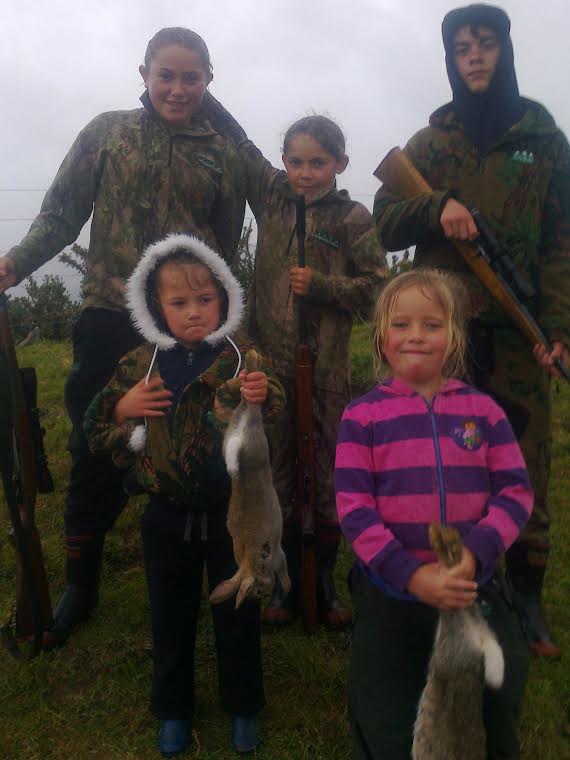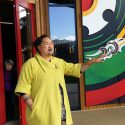Gathering food from the land and the sea is a way of life for many whānau. It makes cultural as well as economic sense. Ian Linton (Tūhoe) reckons that he, and his wife Pepa (Whakatōhea, Te Whānau Apanui) would be hard pressed to support their eight children if it was any other way.

Some of the Linton tamariki. Dad Ian says, “I’ve passed those gathering skills onto my children and they love it.”
Ian has taught all his children, including his six and 10 year old daughters, to hunt, fish and garden.
“Most of the meals we put on the table come from our garden, from fish we’ve caught ourselves and from animals brought back from hunting trips in the hills around here. I’d never be able to support a family of this size otherwise, and I’m one of the lucky ones with a full time job.”
“I’ve passed those gathering skills onto my children and they love it. My girls cry if they think they’re going to be left behind. They’re happy to walk for hours in bush way about their heads and when it comes to gutting fish and singeing pigs, they’re right in there.”
Ian loves being able to pass these skills onto the next generation.
“It keeps them balanced and they’ll be able to provide for their own families if they need to.”
Ian arrived in Opoiki 30 years ago to hunt in the nearby forest and raft the Motu River and ended up losing his heart and finding a home in a tight-knit community
In his day job Ian is the Mental Health and Addictions team leader with Whakatōhea Health and Social Services and the practice leader for their youth team. He and his “work whanau” actively encourage others in the community to garden and gather fresh food.
“Our kaumātua, or our ‘sage group’, go from home to home helping people put gardens in and tend them. This is having a huge effect on the general health of the town.”
“People get good exercise and are able to eat lots of fresh vegetables and there’s an abundance of fruit trees here, so whatever the season we have fresh food. If it’s feijoa season, then the cake on our table will be feijoa cake.”

